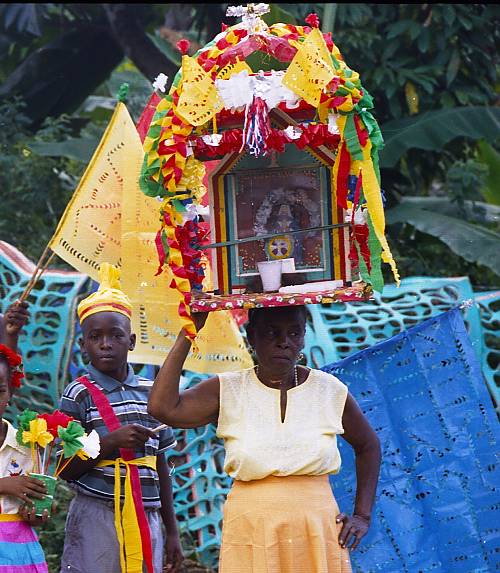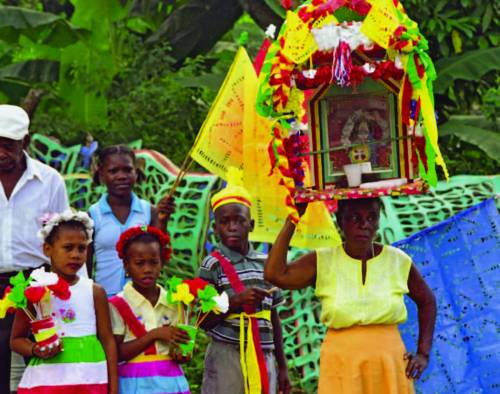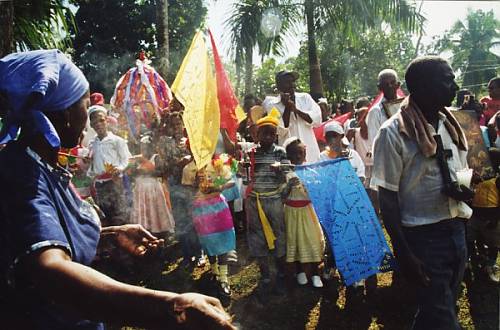Cultural space of the Brotherhood of the Holy Spirit of the Congos of Villa Mella
Inscribed in 2008 (3.COM) on the Representative List of the Intangible Cultural Heritage of Humanity (originally proclaimed in 2001)
The Brotherhood of the Holy Spirit of the Congos of Villa Mella is distinguished in the fields of music, dance and popular festivities. The Brotherhood musicians play instruments called congos. These congos, the origin of which is attributed to the Holy Spirit, are hand-drums. The Brotherhood, which is nowadays open to all without distinction of sex or origin, was founded in the sixteenth century by African slaves and people of mixed origin. For historical reasons, the Brotherhood is an important part of the cultural identity of its members and of the region as a whole.
The Festival of the Holy Spirit, celebrated at Pentecost, features prayers, dances and singing, accompanied by the music of the congos and a procession carrying the dove representing the Holy Spirit. This occurs at the wake, during the procession to the cemetery and on the ninth day of mourning, when prayers are recited in front of a three-tiered catafalque carrying a doll representing the dead. At the Banko ceremony, three years after the death, the same catafalque is prepared and the living take leave of the deceased, who then becomes an ancestor. On this occasion, all the guests dance to the music of the congos.
The permanence of the Brotherhood has been threatened by the lack of interest shown by the elite in cultures of African and mixed origin. Today, the acceleration of urban growth, migration, unemployment and the standardization of values is reinforcing prejudices and the lack of understanding of the Brotherhood.



